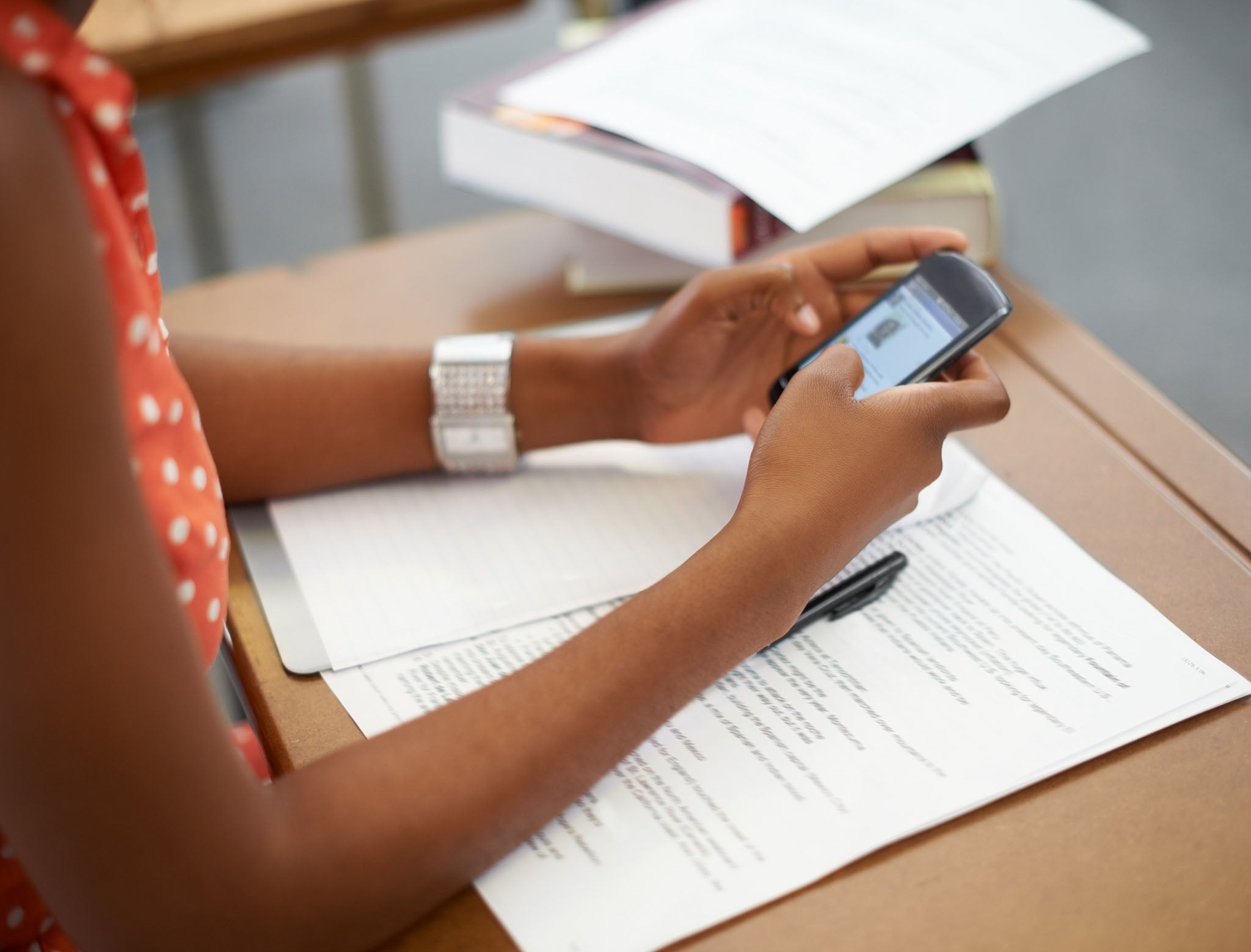Exam cheating: A third of students admit to doing so this year alone, as survey reveals the most unusual methods used
14% of students claim their teachers have helped them to cheat

A third of students have admitted to cheating in exams, with 32 per cent confessing to having cheated this year alone, according to a new survey which has also revealed some of the desperate lengths young people have gone to.
The Student Room’s research* highlighted how some students are swallowing notes to then regurgitate back up in their exams, as well as developing a ‘Morse code’ between friends in the exam hall. Some are even sneaking into the hall beforehand to attach notes beneath their assigned desk.
Half felt the need to cheat in science, while 43 per cent did so in maths, followed by a third who did so in languages, 19 per cent in English literature, 15 per cent in English language.
Seventy-five per cent who admitted to cheating said they don’t feel guilty about it, with 55 per cent saying they did it “because it’s easy to get away with,” while 43 per cent did so because of exam stress. Pressure from family to do well (28 per cent) and the fact that their friends were doing it (18 per cent) were also cited as reasons.
Most unusual cheating methods:
- Swallowing notes to regurgitate back up
- Concealed earphones
- Developing ‘Morse code’ i.e. as coughing/tapping desk
- Notes written on parts of the body such
- Disguising phones as calculators to sneak into exams
- Sneaking into hall before exam and attaching notes below assigned desk
- Placing notes in view outside the window of the exam hall
- Having a friend signal answers through the window
Technology is becoming a widespread way for cheating with graphing and smart calculators, MP3s, phones hidden in bathrooms, texting friends, and smartwatches all cited as common methods used.
Startlingly, 14 per cent even claimed their teachers helped them to cheat.
Results also varied in terms of region with Northern Irish students emerging as being the most prolific cheaters (45 per cent), followed by London (41 per cent), Ireland (40 per cent), and a third in Yorkshire.
Top ways students think cheating should be stopped:
- More, and better-trained, invigilators
- Searching students on entry and checking for writing on their body
- Checking bathrooms before exams for hidden notes
- Equipment checks on entry, i.e. ensuring calculator memories are cleared
- Easier questions/better teaching to reduce stress and motivations for cheating
- Harsher punishments if caught
Jack Wallington, community director at The Student Room, said: “Following this year’s exam season, over 40 per cent of students have called for more to be done to combat cheating in exams. Students suggested tougher security checks, including body searches, to stop their peers from cheating.
“We work with exam boards to explain the risks of cheating to students. Disqualification from all exams should already be a strong enough deterrent. However, the fact almost half of those who cheat say they do so due to the stress they are under - often from their own parents - may explain why they turn to such desperate measures.”
*Survey age range was 14 to 25-years-old, with the majority of all 1,210 respondents (75 per cent) aged 15 to 18
Join our commenting forum
Join thought-provoking conversations, follow other Independent readers and see their replies
Comments
Bookmark popover
Removed from bookmarks